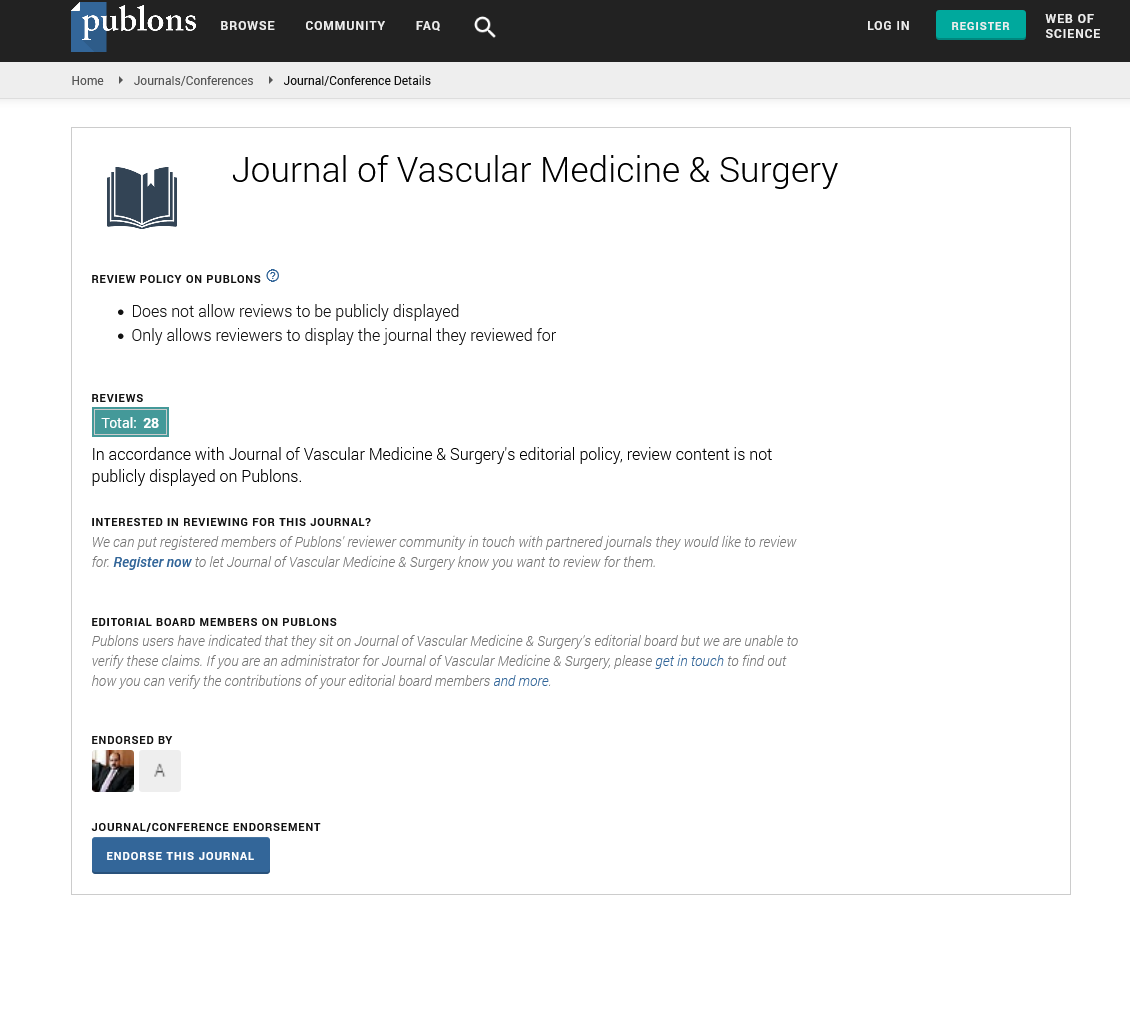Indexed In
- Open J Gate
- Academic Keys
- RefSeek
- Hamdard University
- EBSCO A-Z
- OCLC- WorldCat
- Publons
- Euro Pub
- Google Scholar
- SHERPA ROMEO
Useful Links
Share This Page
Journal Flyer

Open Access Journals
- Agri and Aquaculture
- Biochemistry
- Bioinformatics & Systems Biology
- Business & Management
- Chemistry
- Clinical Sciences
- Engineering
- Food & Nutrition
- General Science
- Genetics & Molecular Biology
- Immunology & Microbiology
- Medical Sciences
- Neuroscience & Psychology
- Nursing & Health Care
- Pharmaceutical Sciences
Role of adenosine in the mechanism of action of cardiovascular drugs
World Congress on Vascular Diseases, Medicine & Surgeons Summit
October 24-25, 2016 Chicago, USA
Gerard A Rongen
Radboud University Medical Center, The Netherlands
Scientific Tracks Abstracts: Vasc Med Surg
Abstract:
Under physiological condition, adenosine is continuously formed in the extracellular matrix from ATP (released from sympathetic nerve endings, endothelial cells and erythrocytes) with the conversion of AMP to adenosine by 5â??-ectonucleotidase (CD73) as a rate limiting step. By activating specific adenosine receptors (A1, A2a, A2b and A3), extracellular adenosine has various actions including stimulation of endothelial NO release, modulation of immunocompetent cells, modulation of the autonomic nervous system and inhibition of platelet aggregation. Adenosine signaling is terminated by cellular uptake (diffusion, facilitated by nucleoside transporters and intracellular metabolism). In pathophysiology, adenosine likely reduces development of atherosclerosis and may activate cellular pathways that prevent ischemia-reperfusion injury. In this lecture, the author will discuss animal and human in-vivo data to support the concept that frequently used drugs in cardiovascular disease, such as rosuvastatin, dipyridamole and possibly also metformin interfere with adenosine signaling which may contribute to their cardiovascular benefit.
Biography :
Gerard A Rongen has completed his PhD from Radboud University Medical Center and Post-doctoral studies from University of Toronto and Mount Sinai Hospital, Toronto. He completed his specialty training in Internal Medicine in 2000. In 2011, he was appointed as Professor in Translational Cardiovascular Research at Radboud UMC. He has published more than 100 papers in reputed journals and serves in the executive boards of the Dutch Society for Clinical Pharmacology and the European Association of Clinical Pharmacology and Therapeutics.
Email: Gerard.rongen@radboudumc.nl

